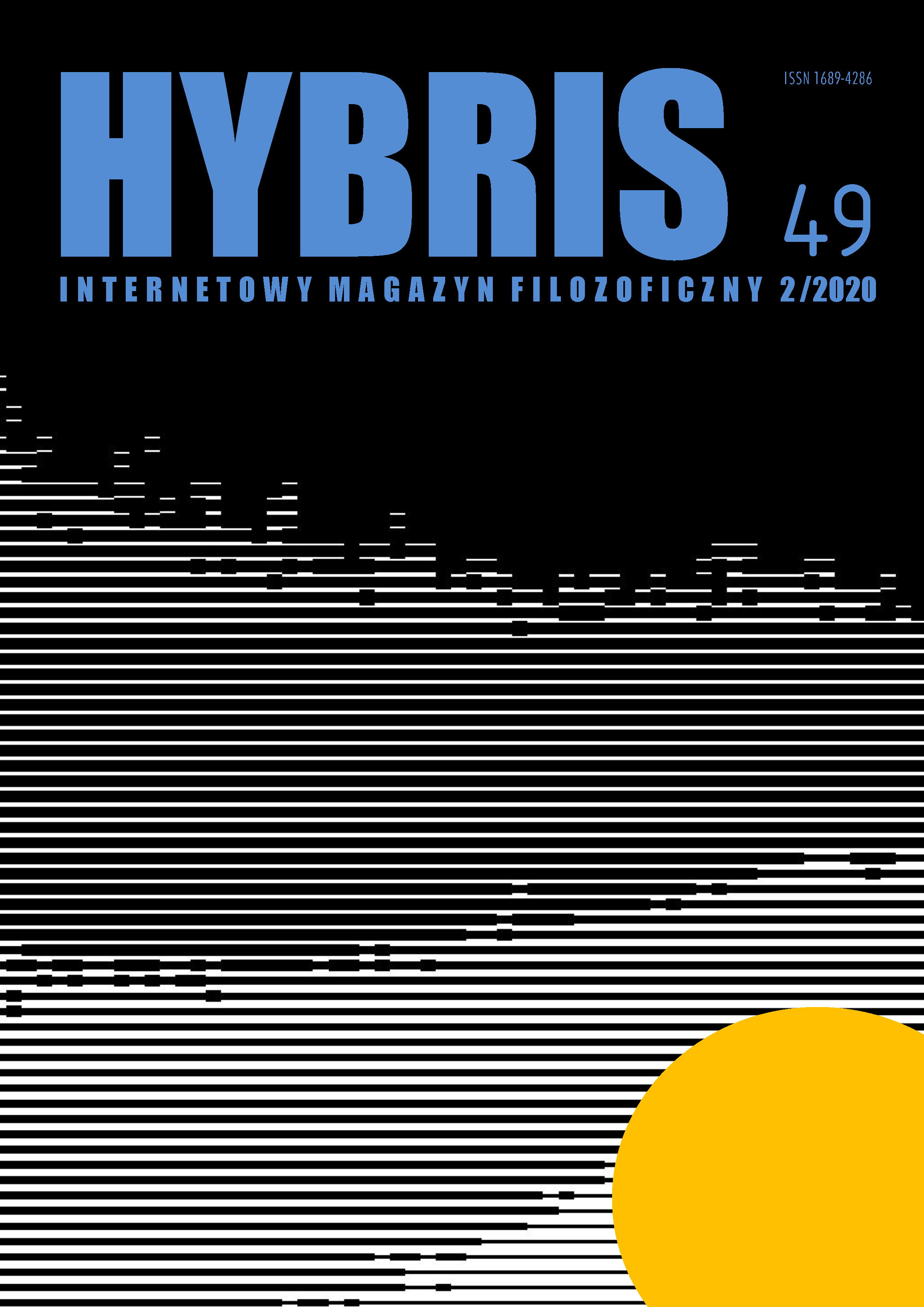Downright Different. On Oskar Szwabowski’s Book "Nekrofilna produkcja akademicka i pieśni partyzantów" (Necrofiliac Academic Production and the Songs of Partisans)
DOI:
https://doi.org/10.18778/1689-4286.49.04Keywords:
University, Marxism, autoethnography, alienation, higher education, critique of neoliberalism, conservatismAbstract
The article comments the stronger and the more disputable points of Oskar Szwabowski’s book Necrofiliac Academic Production and the Songs of Partisans (2019). The authors engage in a polemics with the assertion that autoethnography is able to depict more efficiently than other scientific discourses the reality of the university after the neo-liberal reforms. We also oppose „the workers’ perspective” as promoted by O. Szwabowski, which is to replace the traditional view of the university as an elitist site and of the faculty as a particularly privileged class. Further, the article points out at certain shortcomings of theoretical Marxism which O. Szwabowski uses to criticize and envision the change of the functioning of the academic milieu along with the transformation of the very way we perceive social research – from an individualistic and competetive perspective, to one that is collective and geared in social engagement and intervention. Ultimately, we charge Oskar Szwabowski with an inconsistency which amounts to a contradiction between his notorious call upon academics to realize that the university has become a mass-production company, and the faculty have been turned into the new proletariat, and his resonant grievance upon the poor conditions of work therein.
References
Barnes, Barry. 1982. T. S. Kuhn and Social Science. London: Pelgrave Macmillan.
View in Google Scholar
DOI: https://doi.org/10.1007/978-1-349-16721-0
Bolecki, Włodzimierz. 1993. „Polowanie na postmodernistów.” Teksty Drugie 1: 3-24.
View in Google Scholar
Bellah, Robert N. 1977. „Foreword”. W Rabinow, Paul, Reflections on Fieldwork in Morocco, London: University of California Press.
View in Google Scholar
Crapanzano, Vincent. 1982. Tuhami: Portrait of a Moroccan, Chicago: University of Chicago Press.
View in Google Scholar
Dwyer, K. 1982. Moroccan Dialogues: Anthropology in Question. Baltimore: John Hopkins University Press.
View in Google Scholar
Flemming, Ted. 2009. „Habermas o społeczeństwie obywatelskim, świecie życia i systemie: odkrywanie społecznego wymiaru teorii transformatywnej.” Tłum. Adrianna Nizińska. Teraźniejszość – Człowiek – Edukacja 1: 29-46.
View in Google Scholar
Giroux, Henry A., Giroux, Susan S. 2004. Take Back Higher Education: Race, Youth, and the Crisis of Democracy in the Post-Civil Rights Era. New York: Palgrave MacMillan.
View in Google Scholar
DOI: https://doi.org/10.1057/9781403982667
Giroux, Henry A. 2011. Zombie Politics and Culture in the Age of Casino Capitalism. New York: Peter Lang.
View in Google Scholar
DOI: https://doi.org/10.3726/978-1-4539-1371-0
Habermas, Jürgen, 2002, Teoria działania komunikacyjnego. Tom II – Przyczynek do krytyki rozumu funkcjonalnego, Tłum. Andrzej M. Kaniowski, Warszaw: PWN.
View in Google Scholar
Kossakowski, Roman. 2014. „Medytacja i futbolowa gorączka. O potencjale, ograniczeniach i domknięciach autoetnografii.” Przegląd Socjologii Jakościowej 3: 96-123.
View in Google Scholar
DOI: https://doi.org/10.18778/1733-8069.10.3.05
Kuhn, Thomas S. 1982. Struktura rewolucji naukowych. Tłum. Helena Ostromęcka. Warszawa: Fundacja Aletheia.
View in Google Scholar
Gouldner, Alvin. „Co się zdarzyło w socjologii. Historyczny model rozwoju strukturalnego”. Tłum. Alina Bentkowska. W Czy kryzys socjologii?, red. J. Szacki. Warszawa: Czytelnik.
View in Google Scholar
Markowski, Michał P. 2001. Występek. Eseje o pisaniu i czytaniu. Warszawa: Sic!.
View in Google Scholar
McLaren, Peter. 1989. Life in Schools: An Introduction to Critical Pedagogy in the Foundations of Education. New York: London.
View in Google Scholar
Mezirow, Jack. 1997. „Transformation theory out of context.” Adult Education Quarterly 1: 122-142.
View in Google Scholar
DOI: https://doi.org/10.1177/074171369704800105
Rabinow, Paul. 1977. Reflections on Fieldwork in Morocco. London: University of California Press.
View in Google Scholar
Sendyka, Roma. 2006. Nowoczesny esej. Studium historycznej świadomości gatunku. Kraków: Universitas.
View in Google Scholar
Sendyka, Roma. 2015. Od kultury Ja do kultury Siebie. O zwrotnych formach w projektach tożsamościowych, Universitas, Kraków.
View in Google Scholar
Shaviro, Steven. 2002. „Capitalist Monster.” Historical Materialism 4: 281-290.
View in Google Scholar
DOI: https://doi.org/10.1163/15692060260474486
Siemek, Marek J. 1995. Filozofia spełnionej nowoczesności – Hegel, Wyd. UMK, Toruń.
View in Google Scholar
Szwabowski, Oskar. 2013. „Krytyka ‘oficjalnej krytyki’ neoliberalnych reform w szkolnictwie wyższym.” Praktyka Teoretyczna, 1: 143-165.
View in Google Scholar
DOI: https://doi.org/10.14746/prt.2013.1.10
Szwabowski, Oskar. 2016. „Dociekania robotnicze: analiza filozoficzna.” Forum Oświatowe 1: 77-94.
View in Google Scholar
Szwabowski, Oskar. 2014. Uniwersytet – fabryka – maszyna. Uniwersytet w perspektywie radykalnej. Warszawa: Wydawnictwo Książka i Prasa.
View in Google Scholar
Szwabowski, Oskar. 2019. Nekrofilna produkcja akademicka i pieśni partyzantów. Wrocław: Instytut Pedagogiki Uniwersytetu Wrocławskiego.
View in Google Scholar
Zarębski, Tomasz. 2015. „Zmieńmy uniwersytet w lepszą fabrykę.” Teraźniejszość – Człowiek – Edukacja 1: 133-147.
View in Google Scholar
Znaniecki, Florian. 2001. Ludzie teraźniejsi a cywilizacja przyszłości, Warszawa: PWN.
View in Google Scholar
Downloads
Published
How to Cite
Issue
Section
License

This work is licensed under a Creative Commons Attribution-NonCommercial-NoDerivatives 4.0 International License.






